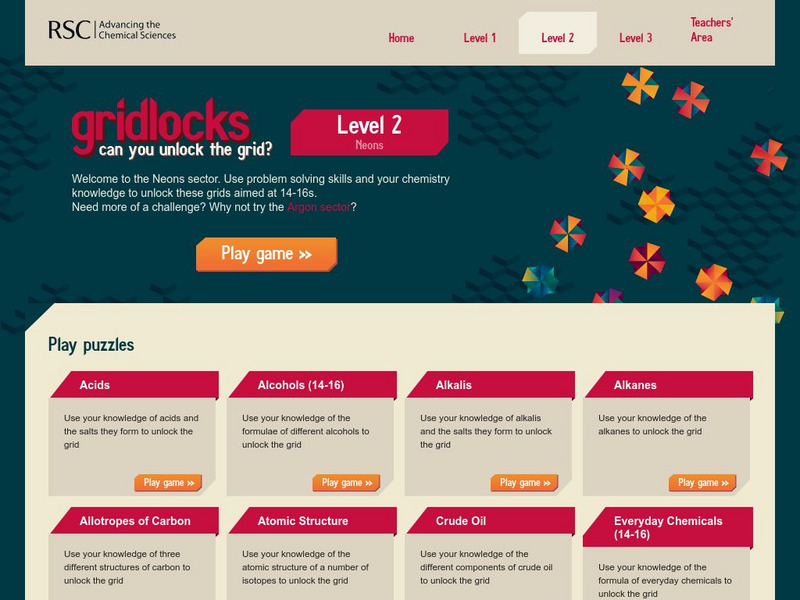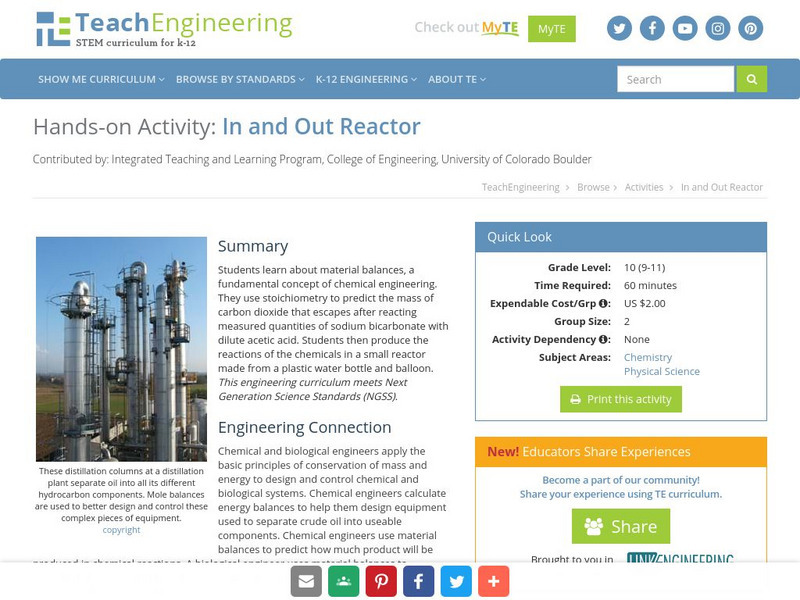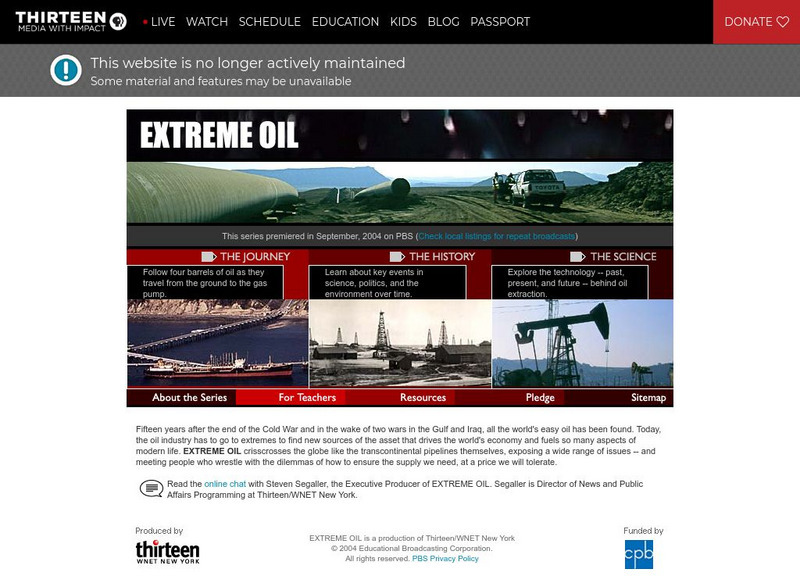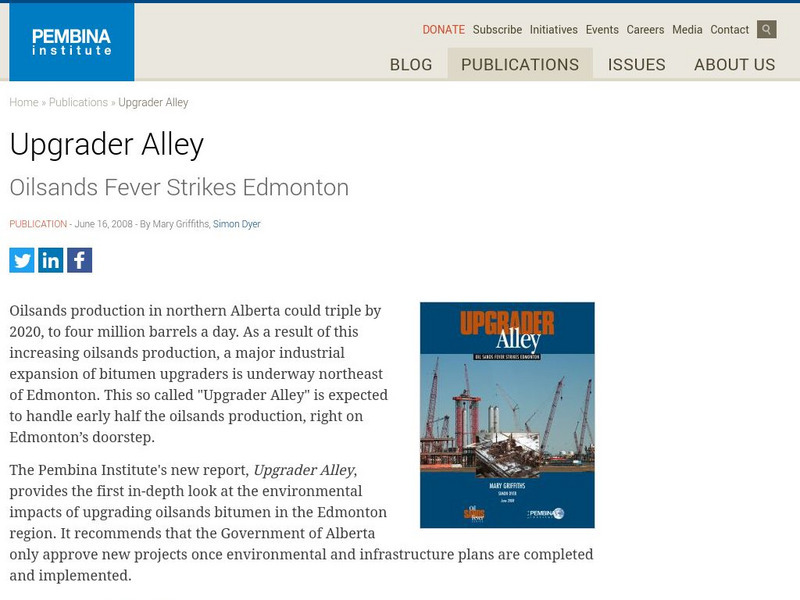Hi, what do you want to do?
DiscoverE
Water Pollution Cleanup
How do scientists determine the best method for removing pollutants from our water sources? Environmental scholars experiment with pollution clean-up options to discover which are the most cost-effective, fastest, and most thorough....
Royal Society of Chemistry
Crude Oil
The United States consumes more oil than any other country, and its residents use 50 percent of that for transportation. Scholars match eight fractions of crude oil to their applications. Then, they fill in three logic puzzles reviewing...
NOAA
Biological Oceanographic Investigations – Signals from the Deep
The Deepwater Horizon oil spill directly impacted an area of the Gulf of Mexico the size of Oklahoma. A marine biology lesson looks at the impact of an oil spill on the deeper parts of the ocean. Scholars download actual data collected...
Curated OER
Earth Materials Module
This slide show progresses through a comprehensive review of the grounding principles of earth science. Get down and dirty with the details of fossil fuels! Help your geologists to have a rock solid understanding of the rock cycle. The...
Curated OER
The Chemistry of Refining Crude Oil
Consider our energy sources: wood, coal, oil, uranium. Learners compare the pollution to energy produced for each. They practice fractional distillation of an alcohol/water mixture to simulate the process of refining crude oil....
Creative Chemistry
Fuels - The Good, the Bad, and the Ugly
Science pupils choose from twelve questions about five different types of fuel: hydrogen, ethanol, crude oil, natural gas, and coal. They construct a table to compare them and then determine the best fuel. Your physical science class...
Curated OER
Hydrocarbons
In this chemistry worksheet, students use the clues given at the bottom of the sheet to complete the crossword puzzle on hydrocarbons. There are 17 statements to solve and fill in on the puzzle.
Curated OER
Quiz 1 on Oil Products
For this oil products worksheet, students select the correct answer to 26 questions from word list provided. They explore the different separation methods of crude oil.
Curated OER
Scraping the Barrel
Students examine how oil is created and its uses. In this oil supplies lesson, students research the history of oil then create a timeline that charts the major ups and downs of the oil industry from when it began.
Curated OER
Connection to Engineering: Fractions of Crude Oil
In this crude oil worksheet, students read about the fractions of crude oil and their demand. They answer questions about the data given.
Curated OER
Products Made from Petroleum
Students research products made from petroleum. In this transportation lesson students try to find products other than fuel, made from petroleum. They look for the most unusual or surprising products and describe the history and...
Curated OER
Crude Oil
In this oil worksheet, students click on the link to read about crude oil and then answer short answer questions. Students complete 7 questions total.
Curated OER
What's In Crude Oil?
Middle schoolers investigate crude oil. In this crude oil lesson, students investigate fractional distillation and use this technique to separate two liquids.
Curated OER
Petroleum Refining
In this petroleum worksheet, students review different types of distillations and name three common petroleum distillation fractions. This worksheet has 10 short answer questions.
Curated OER
Where is Oil Found?
Students determine that crude oil is found in porous rocks (reservoirs) rather than in caves or caverns.
Encyclopedia of Earth
Encyclopedia of Earth: Physics & Chemistry: Petrochemicals
Explains what petrochemicals are, the main hydrocarbon feedstocks that form the basis of petrochemical industries, sources, uses, and products made from petrochemicals. (Published: September 25, 2011)
Other
Bp: Home Page
Very user-friendly site from BP Oil company that is easy to find the information about the oil industry. The front page even lists the current stock price at the very minute you are looking at the site.
Royal Society of Chemistry
Royal Society of Chemistry: Gridlocks: Level 2
A collection of grid puzzles that cover a wide variety of topics in intermediate high school chemistry. These are excellent for topic review and reinforcement. The puzzles can be played online and also downloaded as worksheets. Answers...
TeachEngineering
Teach Engineering: In and Out Reactor
Students learn about material balances, a fundamental concept of chemical engineering. They use stoichiometry to predict the mass of carbon dioxide that escapes after reacting measured quantities of sodium bicarbonate with dilute acetic...
PBS
Wnet: Thirteen: Extreme Oil
This in depth look at oil charts the history, journey, and science behind this industry. Much effort, manpower, and resources are placed behind the extraction, acquisition, and sale of this valuable resource. This segment provides an...
US Energy Information Administration
U.s. Eia Energy Kids: Nonrenewable Oil (Petroleum)
Provides good information about oil made from petroleum. Covers production, offshore drilling, fuel products made from crude oil, the refining process, and environmental issues. Includes helpful charts and maps.
Other
Pembina Institute: Oil Sands Fever Strikes Edmonton
The Pembina Institute has published a report and a 4-page fact sheet on the expansion of oil upgrader facilities in Edmonton from one location to eight, changing the area north of Edmonton into 'Upgrader Alley'. The report describes the...
University of Oregon
Museum of Natural and Cultural History: Rocks and Minerals: Everyday Uses
Click on the shelves in this virtual exhibition to learn about the many rocks and minerals that we use in our everyday lives.
Cosmo Learning
Cosmo Learning: The Inside Story of Modern Gasoline
The inside story on gasoline as told by the Standard Oil Company. This documentary was made in 1946 and explores the molecules that make up crude oil. Learn how the crude oil molecules are separated to make up usable forms like gasoline,...




























